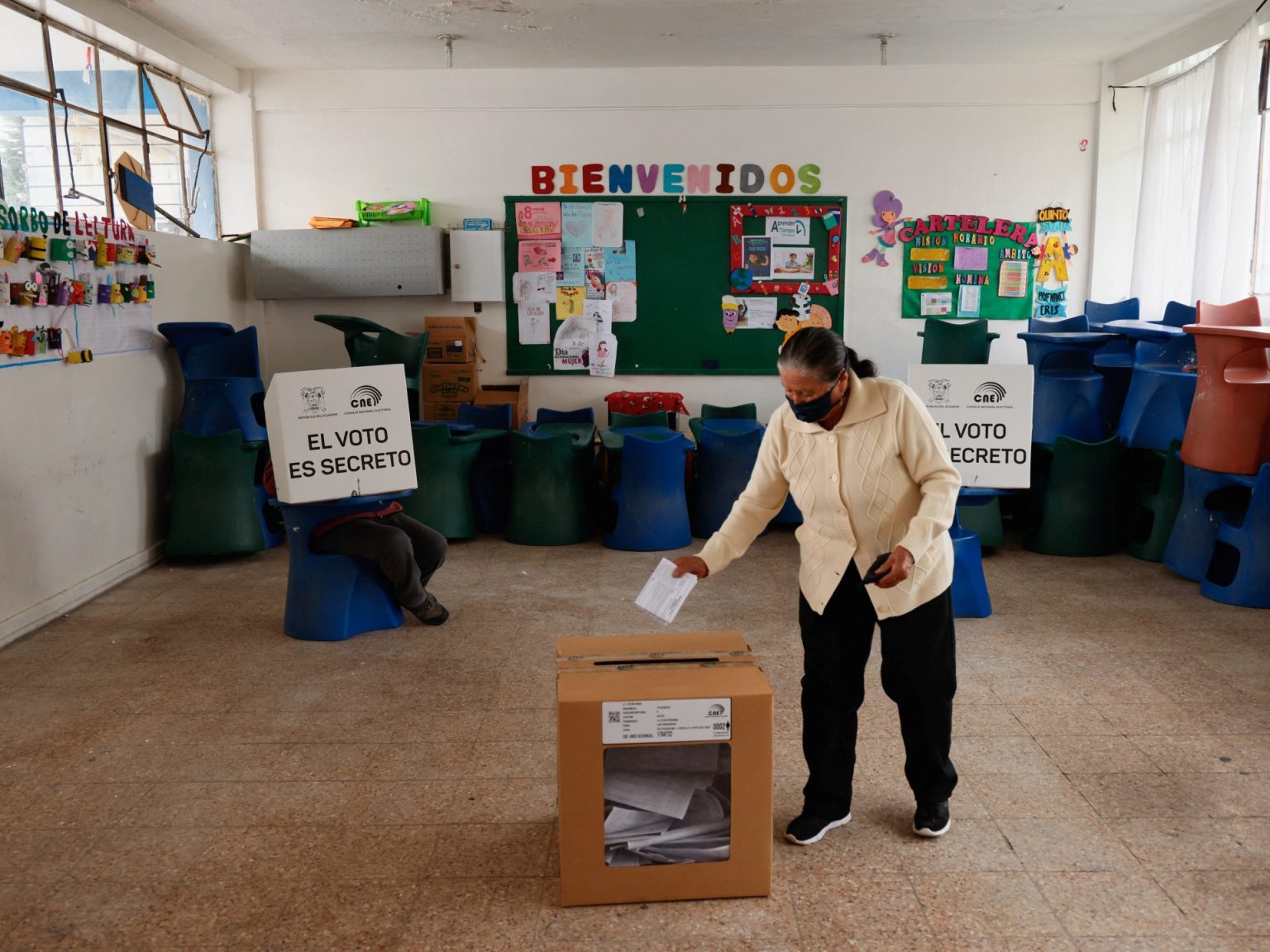Ecuadorians have participated in a referendum focused on tightening security measures in response to rising gang-related crime in the country. Measures proposed include deploying the army in the fight against gangs, facilitating the extradition of accused criminals, and increasing prison sentences for convicted drug traffickers. The referendum aims to address the increasing violence in Ecuador, which has been attributed to gangs with connections to transnational cartels using the country’s ports for drug trafficking.
President Daniel Noboa emphasized the importance of the referendum in determining the country’s policy in combating violence and organized crime. The referendum was prompted by a state of “internal armed conflict” declared by Noboa earlier in the year, following a series of violent incidents instigated by criminal groups. Despite efforts to address the issue, including deploying soldiers to regain control of prisons, violence has persisted, with Noboa warning of the presence of narcoterrorism in the country.
The referendum also seeks to address the alarming rate of violence targeting politicians and officials in Ecuador, with at least a dozen politicians, including presidential candidates and mayors, being killed in the past year. The recent killings of two mayors have highlighted the urgency of taking stronger measures against those responsible for such acts. Noboa’s proposals include expanding military and police powers, tightening gun controls, and imposing harsher penalties for terrorism and drug trafficking. Additionally, he is pushing for a constitutional amendment to allow the extradition of Ecuadorians accused of organized crime offenses.
With a significant portion of the population eligible to vote in the referendum, citizens are being asked to weigh in on the proposed security measures. The majority of the questions on the ballot are related to crime prevention, signaling the importance of addressing the issue of rising violence in the country. In addition to security concerns, Ecuador is also dealing with challenges such as corruption, power shortages, and diplomatic disputes. The murder rate in the country has risen dramatically in recent years, further underscoring the need for effective measures to combat crime and improve public safety.
Voters in Ecuador expressed high levels of concern about the security situation in the country, with many calling for decisive action to address the issue. There is a strong desire for the government to take more proactive steps to combat violence and insecurity, even if it means making constitutional changes. The referendum represents a critical opportunity for Ecuadorians to shape the future course of the country’s security policy and address the challenges posed by organized crime and gang-related activities. The outcome of the referendum will play a significant role in shaping Ecuador’s response to the escalating violence and insecurity gripping the nation.


